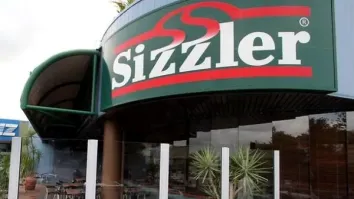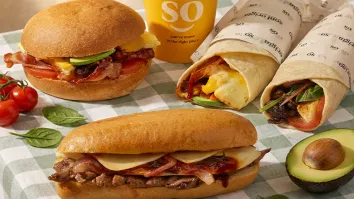
Be Aware: Victorian and Queensland restaurants to comply with mandatory kilojoule display legislation
By Corinne Attard, Partner, Holman Webb Lawyers.
On April 7 2016, the Victorian Government announced that mandatory kilojoule labelling legislation will be introduced into parliament later this month. This announcement follows the very recent decision by the Queensland Government to introduce law requiring fast-food chains, supermarkets, snack-food and drink chains, bakery chains and café chains display the energy content of the food and drink they sell. These requirements were outlined in the Health Legislation Amendment Bill 2015, which was passed by Queensland State Parliament on 15 March. As of 24 March 2016, Queensland restaurant chains and food outlets have 12 months to ensure that they comply with the new mandatory kilojoule (kJ) labelling requirements.
In introducing the new laws, Queensland, and soon Victoria, will join the likes of NSW, SA and the ACT which have all introduced legislation requiring mandatory kilojoule labelling.
Mandatory kJ labelling was first introduced in NSW in 2011 as an attempt to combat the growing obesity epidemic in Australia. While the scheme has faced many sceptics, a study by the NSW Food Authority found there was a 15% drop in kJ per purchase after kJ labelling was introduced. There is now increasing pressure on the remaining states and territories in Australia to implement mandatory kJ labelling.
But what do these laws mean? And how are restaurant operators, owners and franchisees meant to comply with them? To help better understand these requirements, here are the answers to some of the most common FAQ’s regarding mandatory kJ labelling:
Who does the law apply to?
In NSW, ACT, and QLD the law applies to ‘Standard Food Items’ in ‘Standard Food Outlets’.
- A Standard Food Item is an item of ready-to-eat food for sale that is sold in servings that are standardised for portion and content and that are shown on the menu; and
- A Standard Food Outlet is premises at which standard food items are sold by a food business which operates as a chain.
In SA, the law applies to ‘Standardised Food’ in a ‘Multiple-Site Food Business’.
- A Multiple-Site Food Business is a food business that is carried on at five or more separate locations; and
- Standardised Food is food sold as part of a Multiple-Site Food Business that is intended to be the same (or substantially the same) when purchased at any location.
A business is only considered to be a Standard Food Outlet or a Multiple-Site Food Business once it has 20 stores within the State (or 7 in the case of the ACT) or 50 stores nationally (of which SA requires at least 5 stores be within that State).
What must be displayed?
Outlets that are required to comply with the legislation, must display the average kJ content of each standard food item for sale, as well as the reference statement; ‘The average adult daily energy intake is 8700 kJ’.
The legislation applies to electronic and printed menus, drive-through menus, menu boards, online menus and can apply to in-store posters and other marketing collateral. Both the kJs and the reference statement must be displayed in a manner that is clearly legible, in the same font size as the price or name of item and in close proximity to the name and/or price of the item. It is worth reading these requirements in detail if you are charged with the design of menus or posters.
How is the kJ content calculated?
The kJ content for each food item must be in accordance with Standard 1.2.8 of the Food Standards Code. This can be done by calculating kJ from the recipe using prescribed nutritional analysis software or calculators, or through laboratory analysis.
Can a business chose to voluntarily display the information?
If a business, that is not required to comply with the law (due to insufficient store numbers), voluntarily chooses to display kJ information, then this must be done in accordance with all the above requirements.
What happens if a franchisee is found to be non-compliant?
Penalties apply if the requirements are not followed. If a franchised food business is found to be non-compliant, it is the owner or franchisee who will be penalised. The franchisor will be contacted in an attempt to address any issues and determine whether any other stores are non-compliant.
Considering the above, it is increasingly important to ensure your outlets are compliant with any mandatory kilojoule display legislation. For Queensland and soon to be Victorian outlets this is a new requirement and they have 12 months to ensure their menus, marketing collateral and stores are fully compliant.
If you have any additional questions on this topic, please feel free to contact Corinne Attard of Holman Webb Lawyers.
Corinne Attard is a partner in the Sydney office of Holman Webb Lawyers with more than 25 years experience in the retail and franchising world including in-house with a leading national brand. She provides practical commercial advice with legal solutions to retailers, franchisors, master franchisees and multi-unit franchisees.
© Holman Webb Lawyers 2016
























